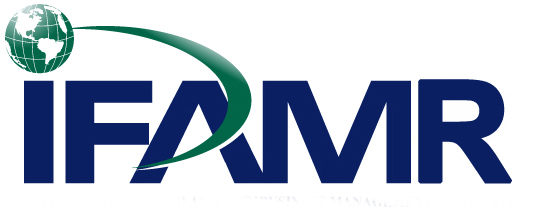Focal point
Location
6700 AE Wageningen
The Netherlands
The IFAMR is an internationally recognized catalyst for discussion and inquiry on issues related to the global food and agribusiness system. The journal provides an intellectual meeting place for industry executives, managers, scholars and practitioners interested in the effective management of agribusiness firms and organizations. We are Open Access.
International Food and Agribusiness Management Review (IFAMR) publishes high quality, peer reviewed, scholarly articles on topics related to the practice of management in the food and agribusiness industry. The Journal provides managers, researchers and teachers a forum where they can publish and acquire research results, new ideas, applications of new knowledge, and discussions of issues important to the worldwide food and agribusiness system. The Review is published electronically on this website.
The core values of the Review are as follows: excellent academic contributions; fast, thorough, and detailed peer reviews; building human capital through the development of good writing skills in scholars and students; broad international representation among authors, editors, and reviewers; a showcase for IFAMA’s unique industry-scholar relationship, and a facilitator of international debate, networking, and research in agribusiness.
The Review welcomes scholarly articles on business, public policy, law and education pertaining to the global food system. Articles may be applied or theoretical, but must relevant to managers or management scholars studies, industry interviews, and book reviews are also welcome.
The Review also reflects agribusiness scholarship world-wide with over half of its Editorial Board, Managing Editors, and article submissions coming from outside the United States. We welcome inquiries from scholars seeking to become more involved with the management of the IFAMR whether as a Managing Editor, a Special Issue Editor, a member of the Editorial Board, or as a Reviewer.
Members:
Resources
Displaying 1 - 4 of 4Academic Perspectives on Agribusiness: An International Survey
The IFAMR is published by (IFAMA) the International Food and Agribusiness Management Review. www.ifama.org
The Impact of Ethanol Production on Spatial Grain Market Relationships
Using cointegration theory, grain markets in Michigan, Kansas, Iowa and Indiana were examined to determine if increased ethanol production affected spatial corn price relationships in these states from 1998 through 2008. It was determined that corn prices operated in a stable, long-run equilibrium from 1998 through 2008 and increased ethanol production did not have an effect on this relationship. These findings suggest policy boosting ethanol production has not altered relationships between spatially dispersed corn markets.
Performance of Smallholder Agriculture Under Limited Mechanization and the Fast Track Land Reform Program in Zimbabwe
The Zimbabwean government has long been committed to expansion of agricultural production through mechanization and pursued this goal under the unpopular fast track land reform program (FTLRP). The acquisition and use of tractors by arable crop farmers in communal and resettlement state land were encouraged. This research examines the performance of the program in the Bindura District. Ninety farmers were interviewed using a multistage sampling technique of structured questionnaires to collect data on demographic background, investment levels and production in terms of costs and returns.
Management System for Harvest Scheduling: The Case of Horticultural Production in Southeast Spain
This article analyzes the programming of farm production, understood not only as the choice among several crops, but also as their temporal distribution. The empirical study takes as a reference the horticultural sector in southeast Spain, since this area constitutes the highest concentration of small-scale farm production in Europe, where the climatic conditions allow the possibility of several harvests in year-round production, as well as several alternative crops.


